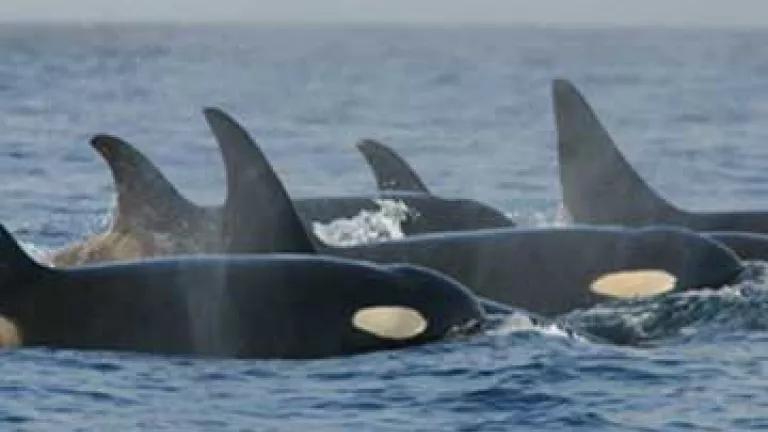
- Over the years, I've taken issue with the National Marine Fisheries Service (NMFS) on a variety of issues (see, for example, NRDC's lawsuit against NMFS to protect whales in the Pacific Northwest from Navy sonar), but this week, NMFS and I have no quarrel. NMFS has rejected a petition to delist the Southern Resident killer whale as endangered under the Endangered Species Act. NMFS first listed these killer whales, which live specifically in Puget Sound for part of the year, as endangered in 2005. The population is distinct--it has its own language and food source, and doesn't interbreed with other groups of orcas. A group of California farmers had extrapolated that the endangered status of the whales was responsible for water restrictions placed on their use of the water from the Sacramento-San Joaquin delta (because the orcas primarily eat Chinook salmon that spawn there). NMFS' decision is not only a win for orcas but a win for healthy ecosystems in California--salmon returned to the San Joaquin river last year for the first time in 62 years.
- Solidifying its "good agency" reputation for the week, NMFS also denied the Georgia Aquarium's request to import 18 wild beluga whales from Russia, finding that the importation would have an adverse impact on the wild population (namely, the Sakhalin-Amur beluga whale stock). My colleague elaborates more on what this means for belugas here. So, great job, NMFS!
- A recent study found that a majority of dolphins stranded on the American coastline were also deaf. Researchers are still delving into the correlation between these two phenomenon, but until then cannot claim a causal link with absolute certainty. However, as my colleagues and I have frequently said, underwater ocean noise pollution is a growing cause for concern among the world's marine mammals, who use echolocation to forage, hunt, mate, communicate, and avoid predators. Surely it is no surprise that deafness would leave them dead in the water, so to speak.
- On a related note, an unusual mortality event continues in the Gulf of Mexico, where more than 1,000 dolphins have stranded since February 2010. The die-offs have spread to Virginia and other East Coast states. This die-off is unprecedented, and as my colleague notes, most likely correlated to the Deepwater Horizon disaster.
Meanwhile, this week in Wales...
Kate and Wills might break protocol (gasp) and set up camp with baby George in Anglesey.
Photo Credit: NOAA

